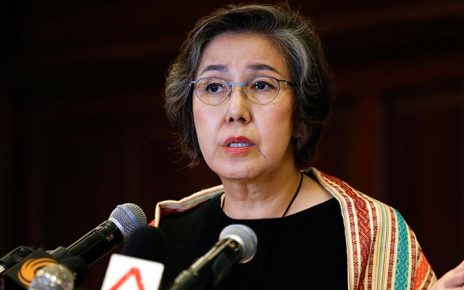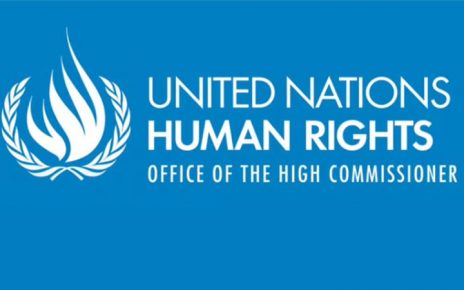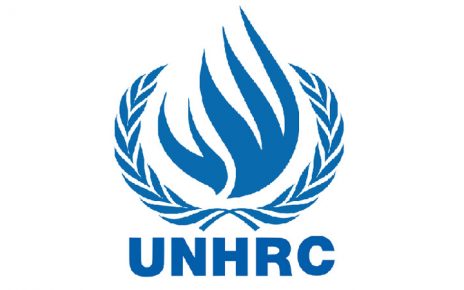New Delhi: Since the release of ACHR’s briefing paper “ Maldives: The case for a resolution at the 29th session of the UN Human Rights Council ” on 15 June 2015, the Government of Maldives has taken more draconian measures which call for adoption of a resolution at the ongoing session of the UN Human Rights Council. The transfer of former President Mohamed Nasheed to house arrest on 21 June 2015 on health grounds[1] and admission of procedural lapses while effecting the arrest of former defence minister Mahamed Nazim[2] are highly inadequate. Rather, the machinations of President Abdullah Yameen Gayoom to disqualify all potential Presidential candidates in the elections in 2018 through the abuse of the rubber stamp i.e. judiciary of Maldives have become more evident.
I. Supreme Court once again proves it is a rubber stamp of the President of Maldives
On 16 June 2015, the Supreme Court of Maldives in a suo motu case (Case No. 2014/SC-SM/42) initiated in September 2014 ruled that the submission of Human Rights Commission of the Maldives (HRCM) to the Second Universal Periodic Review (UPR) of the Maldives before the UN Human Rights Council as unlawful, biased and undermined judicial independence in the country. In its submission, the HRCM included the criticism of the judiciary and the Supreme Court, with reference to a report presented by Special Rapporteur on Independence of Judges and Lawyers Gabriela Knaul following her 2013 visit to the Maldives.[3] The Supreme Court further issued 11 point guidelines which the HRCM must abide by in carrying out its activities. The guidelines effectively ensured that the HRCM does not comply with the Paris Principles of the National Human Rights Institutions.
There have been very strong criticisms from the UN. On 19 June 2015, the UN High Commissioner for Human Rights Zeid Ra’ad Al Hussein stated that the “imposing such extraordinary and broad restrictions on the Human Rights Commission, including on their engagement with international organisations, is completely unacceptable” and the Supreme Court judgement appeared to be “designed to severely undermine its ability to engage with the UN human rights system” and further.[4] The UN Special Rapporteur on the independence of judges and lawyers, Gabriela Knaul and the UN Special Rapporteur on the situation of human rights defenders, Michel Forst stated that “The Supreme Court’s decision is purely and simply an act of reprisal against the Human Rights Commission for its legitimate cooperation with the UN human rights system and its mechanisms” and urged the Supreme Court of the Maldives to reconsider its verdict.[5]
The President of the UN Human Rights Council and the UN Human Rights Council ought to take necessary measure against such reprisals for cooperation with the United Nations human rights mechanisms. No other Supreme Court in the world has passed such restrictions on the NHRIs for cooperating with the UN human rights mechanisms. If the UN Human Rights Council fails to act against this illegal action of the Maldives, it will set a dangerous precedent.
II. Gasim Ibrahim succumbs: Not to contest election in 2018
In its previous briefing paper, Maldives: The case for a resolution at the 29th session of the UN Human Rights Council” dated 15 June 2015, Asian Centre for Human Rights stated, “….President Yameen decided to take measures to ensure there are no credible opposition candidates left to contest the Presidential election in 2018. In this process, President Yameen has not charged Gasim Ibrahim with terrorism offences but only imposed fine of US$ 100 million to cripple him and fall in line”.
Opposition leader Gasim Ibrahim of the Jumhooree Party (JP) has since succumbed to the pressure. On 23 June 2015, Gasim Ibrahim appealed to the 10-member JP parliamentary group to support a ruling coalition-proposed constitutional amendment that would bar anybody above 65 years from contesting Presidential elections; and as Gasim Ibrahim himself will turn 66, he has ruled himself out![6] As Gasim Ibrahim ruled out himself from contesting elections, the talks of President Yameen with the opposition in which only the JP has participated so far lost its credibility.
The international community must note that there is no dialogue with the opposition in the Maldives at present.
III. All in the family: Gayooms playing good cop and bad cop
Former dictator Maumoon Abdul Gayoom reportedly opposed the constitutional amendments setting the age bar. Expressing his disapproval, Abdul Gayoom reportedly in a text message parliamentary group leader of the ruling Progressive Party of the Maldives (PPM), Ahmed Nihan stated, “I reject the proposal to set age limits for the presidency. It will only bring President Yameen into disrepute. Setting a cap on the age of a presidential candidate is not done anywhere in the world.”[7]
While former dictator Gayoom opposes, his daughter i.e. Foreign Minister Dunya Maumoon has been defending the measures taken by President Yameen, half brother of Gayoom, tooth and nail.
It is all in the family including playing good cop/bad cop!
IV. Hiring of private law firm shows the lack of commitment for democratic reform
On 17 June 2015, a joint press statement of the Ministry of Foreign Affairs and Attorney General’s Office stated that the Government of the Maldives had appointed ‘Omnia Strategy LLP’ chaired by Ms Cherie Blair to advise the Government for strengthening the legislative framework of the Government as part of the government’s broader strategy for democracy consolidation in the country.[8]
That the Government of Maldives decided to hire a private law firm rather than seeking the support of the United Nations for democratic reforms once again shows that President Yameen is not committed to democratic reform.
All these developments since ACHR’s briefing paper on 15 July 2015 call for adoption of a resolution on the human rights situation in Maldives at the ongoing 29th session of the UN Human Rights Council which will, inter alia, demand for the unconditional release of all political prisoners charged with terrorism offences including ex-President Nasheed and former Defense Minister Mohamed Nazim, appointment of a Special Rapporteur on the human rights situation in the Maldives, and recommendation to the UN General Assembly to suspend the membership of the Maldives in the UN Human Rights Council as provided under Operative Paragraph 8 of the General Assembly resolution 60/251 establishing the UN Human Rights Council.
Annexure I: Supreme Court’s binding guidelines on the HRC of Maldives[9]
The guidelines issued by the Supreme Court of Maldives on the HRC of Maldives on 16 June 2015 are reproduced below:
- Ensure that the highest priorities of the Maldivian State and the Maldivian citizens are protected, within the parameters of the Constitution and the laws of the Maldives, and in ways that do not go beyond the bounds of the laws.
- Ensure that, all works carried out in the Maldives towards the protection of human rights and promotion of the respect for human rights, are carried out, in a manner that would not disrupt the harmony and unity of the Maldivian society.
- Ensure that, all works carried out in the Maldives, towards the protection of human rights and the promotion of the respect for human rights, are carried out, in a manner that would not undermine the peace and stability of the country; harmony amongst the Maldivians; and the norms and values established and cherished by Maldivians throughout the ages.
- Ensure that, works carried out in the Maldives, towards the protection of human rights and promotion of the respect for human rights are carried out in a way, which would not conflict with the legal mandate and responsibilities of other institutions of the State.
- Ensure that, all activities carried out in the Maldives, towards the protection of human rights and promotion of the respect for human rights, are activities that are allowed under the Maldives Constitution, and the relevant laws.
- Ensure that, activities carried out in the Maldives, towards the protection of human rights and promotion of the respect for human rights are not in contravention with the general standard of behaviours set by the Maldivian society and are in accordance with principles, values and norms held and accepted by the society.
- Ensure that, activities carried out in the Maldives, towards the protection of human rights, promotion of the respect for human rights are carried out with full cooperation of all relevant State institutions and agencies; are based on sound policies that are shaped based on the results of actual research that are carried out in accordance with the belief system and the principles, values and norms held and accepted by the society.
- If, works towards the protection of human rights and the promotion of the respect for human rights in the Maldives, requires to be carried out with the collaboration of foreign parties, ensure that such activities are to be carried out through the relevant agency of the State, as would be done in fully sovereign and independent State.
- Ensure that, all works carried out in the Maldives towards the protection of human rights and promotion of the respect for human rights, are done, to uphold the rule of law, and are carried out in ways that respect for the rule of law and such works increase the conformity to it.
- Ensure that, all works carried out in the Maldives towards the protection of human rights and promotion of the respect for human rights, are works which do not give preferences to a specific political thinking, and which does not benefit any specific party, and which does not aim to damage the reputation of any individual or a party.
- Ensure that, all works carried out in the Maldives towards the protection of human rights and promotion of the respect for human rights, are works which would not facilitate political, social or religious extremism to fester, or that would harm the Maldives or destroy the good image of the Maldives in any way.
Endnotes:
1 . President Yameen authorised Nasheed’s transfer to house arrest, Minivan News, 21 June 2015, http://minivannews.com/politics/president-nasheed-temporarily-transferred-to-house-arrest-99948#sthash.86U5NrS4.dpbs
2 . State defends lapses in raid on ex-defence minister’s home, Minivan News, 22 June 2015, http://minivannews.com/politics/state-defends-lapses-in-raid-on-ex-defence-ministers-home-100000#sthash.t2gKuz0x.dpbs
3 . See http://www.ohchr.org/FR/NewsEvents/Pages/DisplayNews.aspx?NewsID=16101&LangID=E
4 . See the Statement of UN High Commissioner for Human Rights Zeid Ra’ad Al Hussein at: http://www.ohchr.org/EN/NewsEvents/Pages/DisplayNews.aspx?NewsID=16106&LangID=E
5 . See http://www.ohchr.org/FR/NewsEvents/Pages/DisplayNews.aspx?NewsID=16101&LangID=E
6 . Gasim to retire from politics, Minivan News, 17 June 2015, http://minivannews.com/politics/gasim-to-retire-from-politics-99863#sthash.mUoCZpS6.dpbs
7 . Gayoom ‘unhappy’ with age limits for presidency, Minivan News, 20 June 2015, http://minivannews.com/politics/ex-president-gayoom-unhappy-with-age-limits-for-presidency-99934#sthash.32l0OuaX.dpbs
8 . See http://www.maldiveshighcommission.org/news/statements/item/759-joint-press-release-ministry-of-foreign-affairs-and-attorney-general-s-office
9 . English translation of the guidelines issued to the Human Rights Commission of the Maldives by the Maldives Supreme Court, See Annex-I to Information Briefs on the Maldives, 22 June 2015, The Permanent Mission of Maldives to the UN



